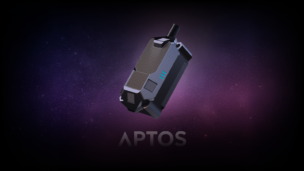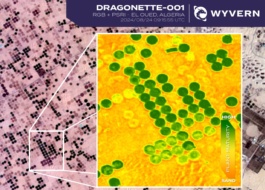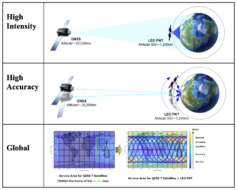Skynopy, a Paris-based satellite connectivity startup, raised $3.1M to simplify the data transfer process between LEO satellites and ground stations, the company announced Monday.
Heartcore Capital, Kima Ventures, Better Angle, and BPI France joined the round, which also included participation from entrepreneurs Thibaud Elziere (founder of Hexa), and Yohann Leroy (CEO of Maia Space).
Outsourcing: Skynopy cofounders Pierre Bertrand and Antonin Hirsch, both former directors at Loft Orbital, started the company in October after seeing firsthand how much capital expenditure and effort it takes for companies to build their own reliable satellite connectivity systems.
“Being at Loft [Orbital], having raised $200M, we could internalize these teams, but we knew that other players would not be able to do that,” Bertrand told Payload.
Skynopy’s goal is to capitalize on the rapidly growing volume of data being transferred from orbit to ground stations by offering satellite operators the ability to outsource these functions instead of building them in-house.
Unlimited minutes: Skynopy intends to use the new funding to grow its team of developers and radio-frequency engineers, and invest in new technology that satellite operators can easily plug into their birds, including:
- Ground stations: Skynopy has created a revenue sharing model with over a dozen existing ground stations around the world that allows Skynopy to utilize its excess data capacity. The company’s eventual goal is to bolster its coverage with its own ground stations, and intends to build its first one in a French overseas territory.
- Connectivity keys: Skynopy aims to create the space equivalent of a SIM card, so satellites can transmit data to any ground station in the Skynopy network with little to no input from the satellite operator. This gives satellite operators global coverage and the added ability to scale up their data usage at the push of a button.
As the cost to get satellites into orbit decreases, the need for cheap, seamless data transfers back to earth has grown, and Skynopy hopes to be the main provider of orbital connectivity. The company’s goal is to completely free satellite companies from needing to worry about how they’re getting their data.
“You don’t want the refueling station or the hyperspectral constellation to be expert on how they will download data; it does not make any sense. They should specialize in selling their service, and we want to provide that transparent connectivity,” Bertrand told Payload.




